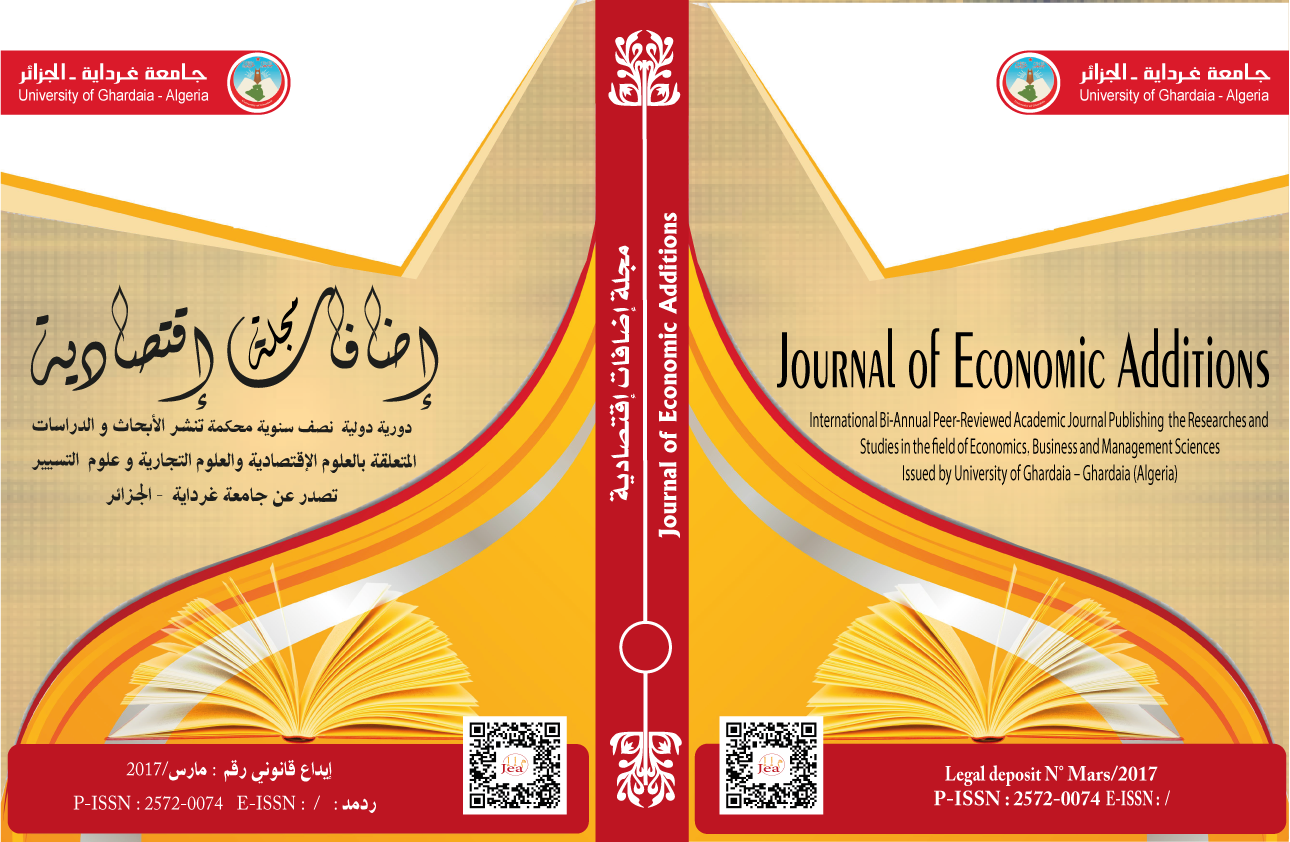آليات مكافحة جرائم التهرب الضريبي في محافظة بيت لحم من وجهة نظر ذوي الاختصاص
Résumé
هدفت هذه الدراسة الى التعرف على اليات مكافحة جرائم التهرب الضريبي في محافظة بيت لحم من وجهة نظر ذوي الاختصاص، وعلاقتها ببعض المتغيرات وهي (سنوات الخبرة ، والمؤهل العلمي) وقد استخدم الباحثون في هذه الدراسة المنهج الوصفي التحليلي الذي يعتمد على دراسة الظاهرة في الوقت الحاضر كما هي في الواقع، وطبقت الدراسة على عينة مكونة من العاملين في دوائر الضريبة والضابطة الجمركية في مدينة بيت لحم في بنسبة حوالي (60)% من مجتمع الدراسة، وبلغ معامل الثبات لأداة الدراسة (0.903)، وتم تحليل البيانات التي تم الحصول عليها باستخدام برنامج الرزم الاحصائية للعلوم الاجتماعية (spss).وتوصلت الدراسة إلى مجموعة من الاستنتاجات أبرزها، أن الاليات التشريعية لمكافحة جرائم التهرب الضريبي أكبر من الاليات الإدارية،كما يعتبر تشديد العقوبات على جرائم التهرب الضريبي أبرز الاليات التشريعية، كما يعتبر تبسيط الإجراءات الإدارية المتعلقة بتقدير وتحصيل الضريبة أبرز الاليات التشريعية، وقد أوصت الدراسة بضرورة تعديل أحكام القرار بقانون رقم 8 لسنة 2011 بشأن ضريبة الدخل ليوائم التطورات الاجتماعية والاقتصادية ويحقق مبدأ العدالة الضريبية، وإجراء حوار وطني شامل قبل إقرار اي قانون يتعلق بالضريبة، وتشديد العقوبات على جرائم التهرب الضريبي.
كلمات مفتاحية : اليات، مكافحة، جرائم التهرب الضريبي، ذوي الاختصاص.
Références
أبو خلف، فهد، (2007)، حوافز ضريبة الدخل الممنوحة في قانون تشجيع الاستثمار الفلسطيني، رقم (1) لسنة 1998، رسالة ماجستير غير منشورة، جامعة الخليل، الخليل، فلسطين.
جمعة، محمد عبدالله (2005)، التهرب الضريبي لدى أصحاب المهن الحرة في مدينة جنين، رسالة ماجستير، جامعة النجاح الوطنية، نابلس، فلسطين.
خصاونة، جهاد (2010)، سعيد علم المالية العامة والتشريع الضريبي بين النظرية والتطبيق العملي، ط1، دار وائل للنشر، عمان.
الخطيب، خالد (2000)، التهرب الضريبي، مجلة جامعة دمشق، مجلد 16، عدد 2، 157-187.
الزعبي، عبدالله واخرون (2013)، أساليب التجنب والتهرب الضريبي وقصور قانون ضريبة الدخل الأردني في مواجهتها من وجهة نظر مقدري ضريبة الدخل، مجل المنارة للبحوث والدراسات، مجلد 19، عدد 4، ص9-36.
السعدني، مصطفى (2010)، التهرب الضريبي مفهومه ابعاده صوره والعقوبات المقررة، مجلة المال والتجارة، عدد 500، شهر 12، ص4-17.
شرع، السيد محمد (1996)، التهرب الضريبي ماهيته أثاره كيفية مكافحته، مجلة البحوث المالية والضريبية، مجلد 1، عدد 2، الجمعية المصرية للمالية العامة والضرائب، ص2-48.
شرع، طالب نور (2006)، الجريمة الضريبية، ط1، كلية القانون، جامعة بغداد، بغداد.
الصعيدي، عبدالله (2007)، علم المالية العامة، دار النهضة العربية، القاهرة.
الطعان، هلا، (2007)، أسباب التهرب الضريبي ووسائل مكافحته في العراق، رسالة ماجستير، جامعة بغداد، العراق.
العدي، إبراهيم (2015)، أثر تعقيد النظام الضريبي في التهرب الضريبي، مجلة جامعة دمشق للعلوم الاقتصادية والقانونية، مجلد 31، العدد 1، ص69-93.
العشي، سليمان (2006)، آثار وأسباب التهرب الضريبي، رسالة ماجستير غير منشورة، بيرزيت، جامعة بيرزيت.
قاسم، صلاح محمد (2003)، التهرب من ضريبة الدخل في فلسطين، رسالة ماجستير، جامعة النجاح الوطنية، نابلس، فلسطين.
معالي، سامح (2015)، معوقات التحصيل لدى الإدارة الضريبية في فلسطين من وجهة نظر موظفي الضرائب، رسالة ماجستير، جامعة النجاح الوطنية، نابلس، فلسطين.
المنجي، إبراهيم (2000)، جرائم التهرب الضريبي، ط1، دار المعرفة، القاهرة.
المهايني، محمد خالد (2003)، دور الضريبة في عملية التنمية الاقتصادية والاجتماعية، مجلة جامعة دمشق، مجلد 19 عدد 2، 255-313.
المهايني، محمد خالد، الخطيب، خالد شحادة، العدي، ابراهيم (2011)، المحاسبة الضريبية، منشزرات جامعة دمشق، دمشق.
الياس، قصابي (2018)، التهرب الضريبي الدولي واليات مكافحته، مجلة رماح للبحوث والدراسات، عدد 26، ص1-12.
ثانيا: المراجع باللغة الأجنبية
Jan, h., Filip, p., (2004), Quality of Government Services and the Civic Duty to Pay Taxes in the Czech and Slovak Republics, and other Transition Countries, vol. 57, issue 2, 237-252.
Edward , C, Mario, H. (2006), What Explains Tax Evasion? An Empirical Assessment based on European Data, https://ideas.repec.org/p/wii/wpaper/40.html
Oliver, t, and bartley, s,(2005), tax system complexity and compliance costs – some theoretical considerations, economic roundup winter, 1-12.
HM Treasury, (2019), Tackling tax avoidance, evasion, and other forms of non-compliance, www.gov.uk/government/publications
Nikolaos, A., Adair, M., and Margarita, T., Measuring Income Tax Evasion using Bank Credit: Evidence from Greece, http://citeseerx.ist.psu.edu/viewdoc/download?doi=10.1.1.703.4096&rep=rep1&type=pdf
Alstadsæter, A., Johannesen, N., Zucman, G., 2017. “Tax Evasion and Inequality”. NBER Working Paper 23772, revised August 2018.
Akcigit, U., Baslandze, S., and Stantcheva S., 2016. “Taxation and the International Mobility of Inventors.” American Economic Review 106 (10), p. 2930–2981.
Alstadsæter, A., Johannesen, N., Zucman, G., 2017, Tax Evasion and Tax Avoidance, http://gabriel-zucman.eu/files/AJZ2018b.pdf
Andres, S., (2019), Hiding financial wealth: The role of tax havens, https://doc-research.org/2019/01/hiding-financial-wealth-role-tax-havens/




